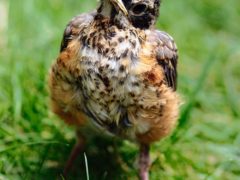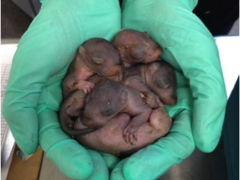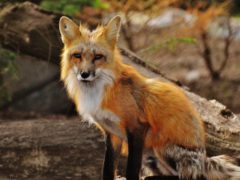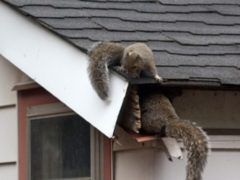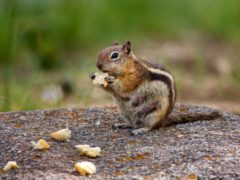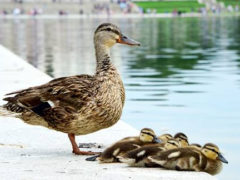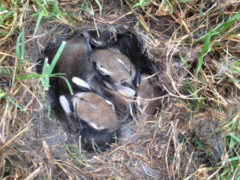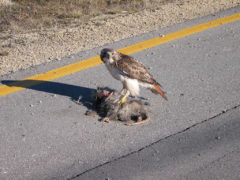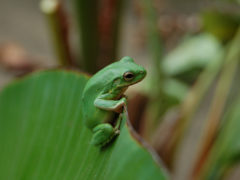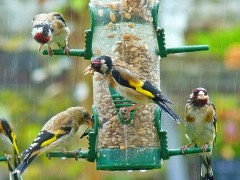We’re deep into spring, which means that baby birds are hatching all around the city! If you happen to stumble upon a grounded baby bird, don’t fret; you can easily help it. First, identify whether or not the baby bird is injured: Does it have open wounds? Is it bleeding? Is it unable to use a leg or a wing? Was it in another [Read More …]
Re-nesting Baby Squirrels
City Wildlife recently admitted the first baby squirrel of the year! Each spring, we get flooded with orphaned squirrels that have fallen from their nest. We do our best to give every squirrel a second chance at life, but our specialized care does not come close to the care they receive from their mother. To ensure their best chance of survival, [Read More …]
Living with Foxes
Springtime is upon us, which means baby animal season! You may be lucky enough to see some baby foxes this spring! Foxes give birth to litters of three to six kits each spring. They nest in dens in the ground and both parents help raise the babies. While the kits are still growing, their parents may leave them alone for periods of time. The [Read More …]
Preventing Unwanted Winter Guests
It’s the time of year when unwanted wildlife guests may invade your home for warmth and shelter. In order to avoid this human-wildlife conflict, there are some preventative measures you can take: Survey the outside of your home, looking for any holes or gaps. If you do find a hole, ensure that there aren’t any animals inside before you [Read More …]
The Horrors of Rodenticide
As a symptom of urbanization, DC is home to large rat and mice populations. There are many ways that people choose to deal with these pest species, including rodenticide. Unfortunately, rodenticide is inhumane and extremely dangerous, especially for wildlife. Rodenticide causes a slow and painful death. Once ingested, it can take up to ten [Read More …]
The Truth About Bread
Many people like to visit ducks at their local pond and feed them bread. As well-intentioned as this may be, it is not advisable. Feeding bread to ducks causes far more harm than good. Bread lacks nutrition and is very filling. Ducks will fill up on bread and not have room for the healthy and nutritious food that they need to [Read More …]
Wildlife Gardening Tips
You’re not the only one who calls your home “home”. Your yard or garden may be home to wild animals. Before you prepare your yard for spring, make sure you aren’t disrupting any of the wild residents. City Wildlife’s gardening tips: Before mowing your lawn, check your lawn for rabbits, turtles, frogs, and any other critters. Eastern [Read More …]
Food Attractants: The Troublesome, Tasty Treats
Just like people, animals love food. But their appetite can get them into trouble. A big cause of human-wildlife conflicts is food attractants. When animals smell food left out by people, they will track it down. This is especially common in the winter when wild food sources are scarcer. Not only can these unwelcomed animal visitors be a [Read More …]
Thin Skinned: Frogs, Toads, and Other Amphibians
Did you know you can gauge the health of an ecosystem by tracking the number of amphibians? Here’s why: frogs, toads, and other amphibians have permeable skin. Consequently, they are extremely sensitive to toxins. If their skin comes in contact with pollutants they become very ill and, depending on the substance, may not survive. Their skin is so [Read More …]
It’s Raining! Where are the Birds?
Regardless of what kind of animal you are, stormy weather can be a real pain. It usually means there is little to be done other than finding a cozy space to hunker down to wait out the wet weather. Most animals have developed behavioral or biological adaptations to help them stay warm and dry during light rains but heavy rains are another matter [Read More …]
